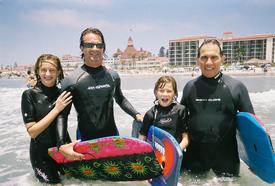"That's why they don't use vacuum cleaners in gym class"

Azdak
Posts: 8,281 Member
I stole (and paraphrased) this from an earlier response to another one of the "does this (activity) count threads. I posted this a couple of weeks ago, but it bears repeating (with some additional info).
Of the many ways that people trying to lose weight lie to themselves, estimating "activity" calories is almost certainly near the top. Every day there are a number of topics and comments from people who "count" (or who would like to count) everything from standing, to cleaning, to walking to the car from the house, to having sex, to going to the bathroom, etc, as "activity" or "exercise". For most people, the only "exercise" involved in this effort is an exercise in futility or self BS.
1. There are three main components to daily energy output: BMR, or resting metabolism, Exercise calories, and activity calories. There are a number of formulae established to estimate BMR. Exercise calories are a little harder to quantify, but there are a number of tools out there that can get you in the ballpark. Activity calories have the most variability and are the hardest to quantify. In order to account for those calories, we set up a general level of activity in our profiles, which adds a certain percentage of calories to our BMR to help determine daily intake.
2. However: that activity multiplier represents an AVERAGE, not a minimum. It is easy to remember ONLY the days one did a little extra and conveniently forget those days when you weren't very active at all.
3. In addition, most people fail to account for OTHER changes in their activity patterns that might occur when work or recreational activity changes. Often, when people increase their activity in one area--e.g. a job that requires more walking or more effort--the increased fatigue causes them to decrease other casual activity. The often also see a decrease in the amount or intensity of their exercise programs. The net result is that any increase in work activity (or casual or domestic) is usually offset by a decrease in other types of activity, so that overall energy expenditure does not change. Often, these changes are subtle and not something that we are consciously aware of, but they are very real.
4. Most people significantly overestimate the amount of exertion required to do everyday activities. They use inappropriate cues such as sweating or fatigue to estimate effort; or use calculators that provide inflated estimates; or confuse "continuous" activity with "intermittent" activity, or use HRMs to estimate calories expended (I'll deal with that separately). I have seen large population studies in which participants kept detailed activity logs over a period of weeks. Activity hours were classified according to exertion levels and an overall activity index assigned for each day. The results suggested that, when casual work and leisure activities were included with rest and sedentary behaviors, 70% of all adults measured were essentially motionless. This doesn't mean they sat in a chair all day--it meant that the "extra" activity in their lives did not amount to much.
Look at the two of the standard descriptions for determine average activity level:
Very light
Seated and standing activities, painting trades, driving, laboratory work, typing, sewing, ironing, cooking, playing cards, playing a musical instrument
Light
Walking on a level surface at 2.5 to 3 mph, garage work, electrical trades, carpentry, restaurant trades, house cleaning, child care, golf, sailing, table tennis
Note that "standing activities" fall into the "very light" category. Given the nature of modern industrialized society, very few people could be honestly classified in anything above the "Light" category.
5. Our bodies do a good job of maintain long-term equilibrium. Small variations in food intake or activity level average out over time. Stored body fat represents the LONG TERM balance between energy intake and energy expenditure. A common mistake made by "fat burners", "protein cultists", and "activity hoaders" alike is to think that what happens during a short-term event is a discrete occurrence that is not related to what happens in our bodies the rest of the day, week, month, or year. Over the long-term, those few episodes of house cleaning or yard work are insignificant.
6. HRMs cannot be used to track energy expenditure during casual activity. CANNOT. I don't know how to say it any plainer. Unless the activity is a steady-state, dynamic activity that is at least 40% of your VO2 max, any number from an HRM is garbage. Even the HRM manufacturers themselves will admit this. If you are wearing an HRM all day to "count calories", you are just wearing out the batteries.
Activity calories MIGHT be significant if there is a permanent and substantial increase in the amount of activity in your daily routine AND that increase in activity is not offset by decreasing other casual activity or exercise or is not offset by increasing caloric intake.
Ultimately, you can tell yourself anything you want or track anything you want, however, these are just artificial constructs--your body will be the ultimate judge.
Of the many ways that people trying to lose weight lie to themselves, estimating "activity" calories is almost certainly near the top. Every day there are a number of topics and comments from people who "count" (or who would like to count) everything from standing, to cleaning, to walking to the car from the house, to having sex, to going to the bathroom, etc, as "activity" or "exercise". For most people, the only "exercise" involved in this effort is an exercise in futility or self BS.
1. There are three main components to daily energy output: BMR, or resting metabolism, Exercise calories, and activity calories. There are a number of formulae established to estimate BMR. Exercise calories are a little harder to quantify, but there are a number of tools out there that can get you in the ballpark. Activity calories have the most variability and are the hardest to quantify. In order to account for those calories, we set up a general level of activity in our profiles, which adds a certain percentage of calories to our BMR to help determine daily intake.
2. However: that activity multiplier represents an AVERAGE, not a minimum. It is easy to remember ONLY the days one did a little extra and conveniently forget those days when you weren't very active at all.
3. In addition, most people fail to account for OTHER changes in their activity patterns that might occur when work or recreational activity changes. Often, when people increase their activity in one area--e.g. a job that requires more walking or more effort--the increased fatigue causes them to decrease other casual activity. The often also see a decrease in the amount or intensity of their exercise programs. The net result is that any increase in work activity (or casual or domestic) is usually offset by a decrease in other types of activity, so that overall energy expenditure does not change. Often, these changes are subtle and not something that we are consciously aware of, but they are very real.
4. Most people significantly overestimate the amount of exertion required to do everyday activities. They use inappropriate cues such as sweating or fatigue to estimate effort; or use calculators that provide inflated estimates; or confuse "continuous" activity with "intermittent" activity, or use HRMs to estimate calories expended (I'll deal with that separately). I have seen large population studies in which participants kept detailed activity logs over a period of weeks. Activity hours were classified according to exertion levels and an overall activity index assigned for each day. The results suggested that, when casual work and leisure activities were included with rest and sedentary behaviors, 70% of all adults measured were essentially motionless. This doesn't mean they sat in a chair all day--it meant that the "extra" activity in their lives did not amount to much.
Look at the two of the standard descriptions for determine average activity level:
Very light
Seated and standing activities, painting trades, driving, laboratory work, typing, sewing, ironing, cooking, playing cards, playing a musical instrument
Light
Walking on a level surface at 2.5 to 3 mph, garage work, electrical trades, carpentry, restaurant trades, house cleaning, child care, golf, sailing, table tennis
Note that "standing activities" fall into the "very light" category. Given the nature of modern industrialized society, very few people could be honestly classified in anything above the "Light" category.
5. Our bodies do a good job of maintain long-term equilibrium. Small variations in food intake or activity level average out over time. Stored body fat represents the LONG TERM balance between energy intake and energy expenditure. A common mistake made by "fat burners", "protein cultists", and "activity hoaders" alike is to think that what happens during a short-term event is a discrete occurrence that is not related to what happens in our bodies the rest of the day, week, month, or year. Over the long-term, those few episodes of house cleaning or yard work are insignificant.
6. HRMs cannot be used to track energy expenditure during casual activity. CANNOT. I don't know how to say it any plainer. Unless the activity is a steady-state, dynamic activity that is at least 40% of your VO2 max, any number from an HRM is garbage. Even the HRM manufacturers themselves will admit this. If you are wearing an HRM all day to "count calories", you are just wearing out the batteries.
Activity calories MIGHT be significant if there is a permanent and substantial increase in the amount of activity in your daily routine AND that increase in activity is not offset by decreasing other casual activity or exercise or is not offset by increasing caloric intake.
Ultimately, you can tell yourself anything you want or track anything you want, however, these are just artificial constructs--your body will be the ultimate judge.
0
Replies
-
Very well explained. Thank you. Makes sense.0
-
Great explanation!! Thanks.0
-
THANK YOU ONCE AGAIN!!
Unfortunately some people just don't listen!!0 -
Thanks for another terrific post Sir!:drinker:
Becca0 -
Good stuff man. Plenty of people on here NEED to read this!0
-
Ultimately, you can tell yourself anything you want or track anything you want, however, these are just artificial constructs--your body will be the ultimate judge.
How true is that? Love it!! People need to quit sabotaging their own efforts!0 -
Measuring goes along with this one. I know I am guilty of figuring I had about 1 cup.
I only log gym or go out and purposely do kind of exercise. I figure any hard cleaning that I do and only do once a week is a little bonus.0 -
THANK YOU ONCE AGAIN!!
Unfortunately some people just don't listen!!
I agree! Thanks again for being the voice of reason 0
0 -
well i will say on some points i agree with the origional poster however, some people do log in cleaning but lets just point out that some people really do clean meaning moving furniture, lugging a heavy carpet cleaner around doing all the carpets etc bottom line i would have to say you are burning calories, i mean it beats sitting on your bum. yes you have to other activities to lose weight but some of these calories we burn do count.0
-
:drinker: :drinker: :drinker:THANK YOU ONCE AGAIN!!
Unfortunately some people just don't listen!!
I agree! Thanks again for being the voice of reason
 0
0 -
OMG, I may have just heard it all now.......... praying sitting, bell ringing (as in hand held bells in choir)........someone posted a thread asking how much they can record these activites for.
Whaaaaaaaaaa???:huh: Omg, I'm left speechless, right after I finish this post.....bwwwwwhahah
:noway: Some of these posts have simply GOT to be a joke right???
Please someone tell me they are???
Ok, now I'm now I'm speechless........gonna go run some bathwater, wonder how much that burns in cals? :ohwell: :noway: :grumble: :laugh: :laugh:
From this point on, I just gotta find the humor or it'll make me lose my marbles, it really will!! :smokin:
Oh and I will be off eating my magic calorie free noodles through a straw wearing my hrm if anyone is looking for me tee hee 0
0 -
OMG, I may have just heard it all now.......... praying sitting, bell ringing (as in hand held bells in choir)........someone posted a thread asking how much they can record these activites for.
Whaaaaaaaaaa???:huh: Omg, I'm left speechless, right after I finish this post.....bwwwwwhahah
:noway: Some of these posts have simply GOT to be a joke right???
Please someone tell me they are???
Ok, now I'm now I'm speechless........gonna go run some bathwater, wonder how much that burns in cals? :ohwell: :noway: :grumble: :laugh: :laugh:
From this point on, I just gotta find the humor or it'll make me lose my marbles, it really will!! :smokin:
Oh and I will be off eating my magic calorie free noodles through a straw wearing my hrm if anyone is looking for me tee hee
Haha, yeah it won't be long until someone asks if they should log 8 hours of "sleeping" and how many calories that uses.0 -
i think some of you are really missing the point and are actually being quite rude there are plenty of people like myself who do run and go to the gym but also do very hard cleaning like moving furniture by myself for like 2 hours while cleaning carpets, lugging the big carpet cleaner up and down the stairs, scrubbing the floors on your hands and knees bottom line i think we all know that you have to do more than this to lose weight but those people who cannot do quite as much as you or i and maybe only does 30 minutes walking a day plus some of these other things then i say you should commend them atleast they are not sitting on their butt doing nothing.0
-
Hope people get the right ideas from your post...0
-
lol that was my line! :laugh:
Thank you for being a voice of reason in a world of people who are so used to lying to themselves that they think that stuffing laundry into a machine, pushing a hoover/vacuum round the place or doing some dusting is exercise. It isn't, when did any of us ever see a story in a health magazine or on a TV show saying 'I dusted my way to a super fit bod!' or 'I owe my 100lb weight loss to housework!'
umm unless when you are doing laundry you lug all your dirty stuff down to the local river and bash it on rocks for an hour its not really hard work is it? I know you might sweat, but that is because you are fat and unfit! BEING ALIVE burns calories, its not exercise though is it??
arghhhhh :explode:0
This discussion has been closed.
Categories
- All Categories
- 1.4M Health, Wellness and Goals
- 398.2K Introduce Yourself
- 44.7K Getting Started
- 261K Health and Weight Loss
- 176.4K Food and Nutrition
- 47.7K Recipes
- 233K Fitness and Exercise
- 462 Sleep, Mindfulness and Overall Wellness
- 6.5K Goal: Maintaining Weight
- 8.7K Goal: Gaining Weight and Body Building
- 153.5K Motivation and Support
- 8.4K Challenges
- 1.4K Debate Club
- 96.5K Chit-Chat
- 2.6K Fun and Games
- 4.8K MyFitnessPal Information
- 12 News and Announcements
- 21 MyFitnessPal Academy
- 1.5K Feature Suggestions and Ideas
- 3.2K MyFitnessPal Tech Support Questions








